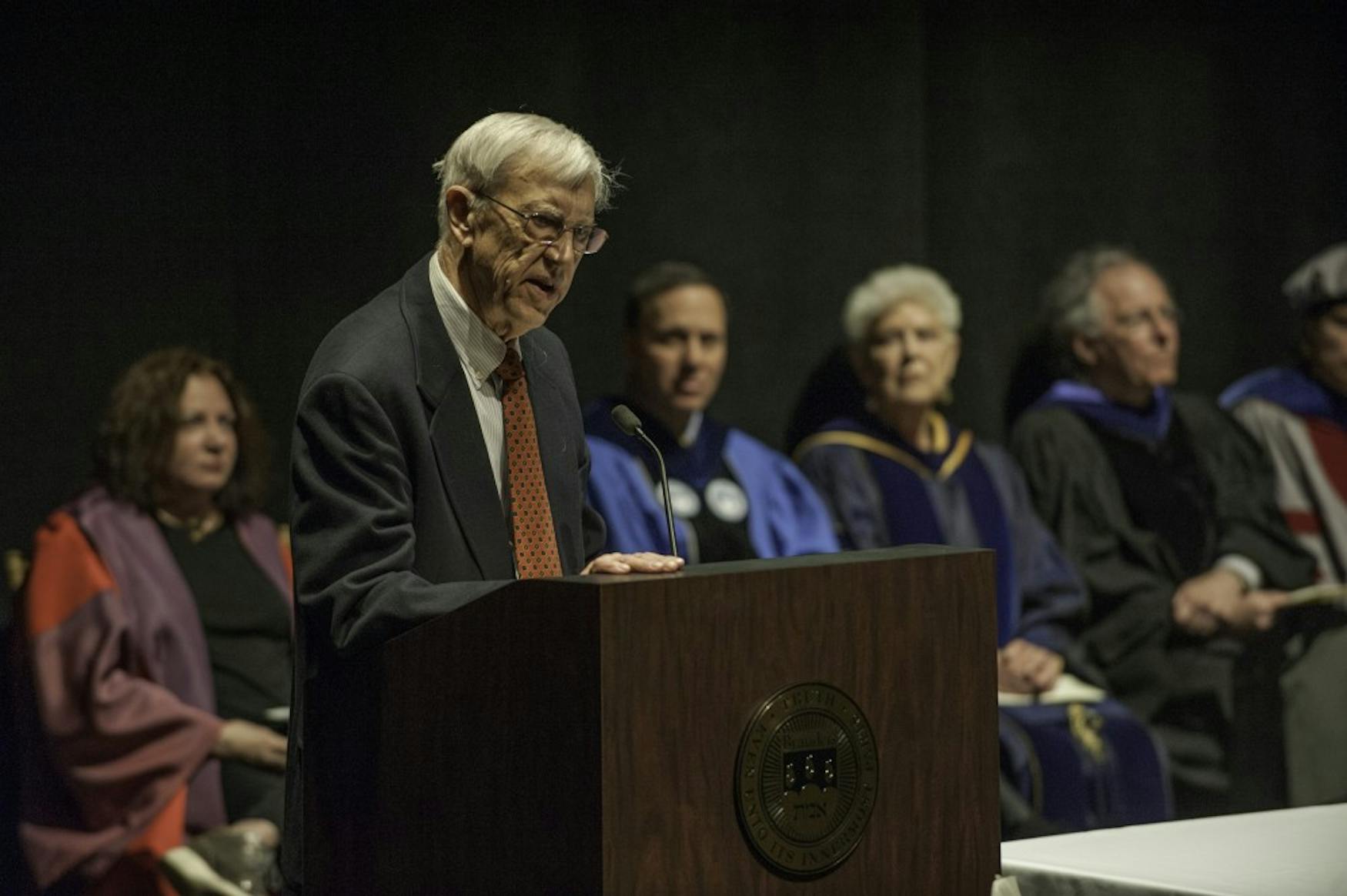Prof. William E. Kapelle addresses 2018 Phi Beta Kappa inductees
In a ceremony on Saturday, the University inducted 92 students to the Mu Massachusetts chapter of Phi Beta Kappa. Family and friends celebrated with the inductees at the event in Spingold Theater.
There were 84 new members from the Class of 2018 and eight new members from the Class of 2019. According to Prof. Craig Blocker (PHYS), Secretary of the Mu Chapter, 10 percent of the Class of 2018 and one percent of the Class of 2019 are members of this select group of students, which includes seven members inducted in last year’s ceremony.
Mu chapter President Prof. Alice Kelikian (HIST) and University President Ron Liebowitz welcomed the students and attendees with opening remarks.
“Phi Beta Kappa was born the year of America’s independence. ... For 100 years, [it] recognized only men, and only white men. A century later, Phi Beta Kappa was finally open to women and subsequently to Blacks and other excluded groups,” Liebowitz explained. Today, he noted, the majority of inductees to the Mu chapter are women.
Brandeis took only 13 years after its founding to be admitted into the PBK community in 1961. No other university founded in the 20th century was asked to join in such a short amount of time, Leibowitz highlighted.
PBK was founded in December 1776 as a fraternity at the The College of William and Mary, making it only five months younger than the United States. In English, its motto means “love of learning is the guide of life.” Students must show proficiency in the arts and the sciences, Blocker explained, and a “well-rounded program of study” to be inducted.
Prof. William E. Kapelle (HIST) highlighted that by attending a university, students “are graduating from one of the oldest institutions of Western society.”
Kapelle then compared the modern university experience to the process that students went through to become scholars in medieval Europe. Students began in their mid-teens and studied “the seven liberal arts” that Kapelle described as an “ideal curriculum.” Lectures began at 6 a.m., and students sat on straw instead of chairs. Books were too expensive for individal students to own, so they took notes by reading and commenting on the master’s book.
After four years, students could undergo examination to become junior masters, who could read books to students in the afternoon but were not allowed to interpret the passages. Most students sought employment before this point, but those who continued studying for another two years could apply for teaching licenses. A student who received a license would be given his attire, hat and book, before giving an address in the cathedral that was followed by a party.
Kapelle said that the students’ caps and gowns “are not authentic medieval garb.” The gown is comparable to undergarments in the Middle Ages. He called the four-cornered cap a “tasteless parody” of the medieval headdress.
“But you should wear it with pride,” Kapelle finished.



Please note All comments are eligible for publication in The Justice.